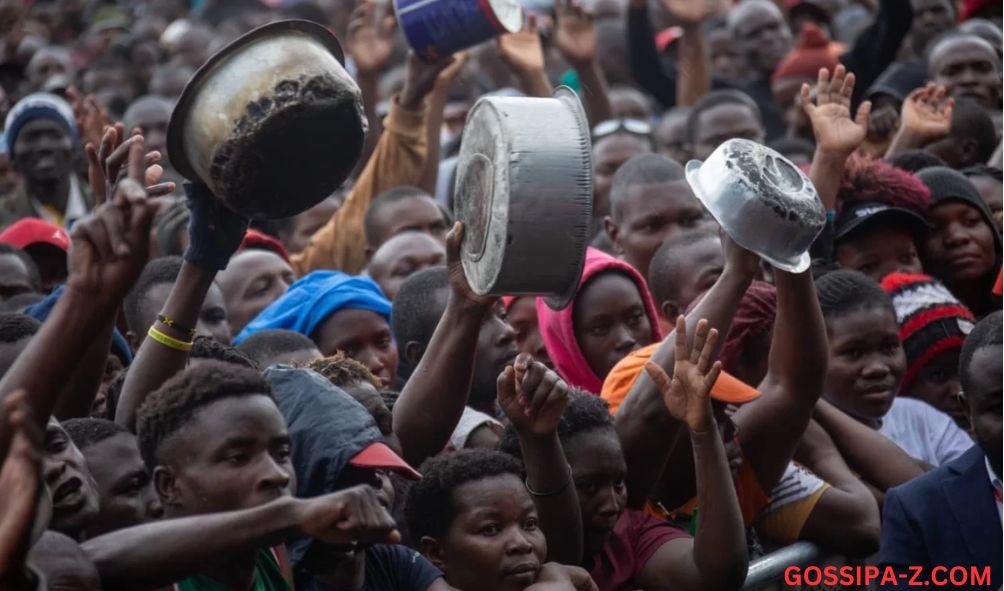84% Of Kenyans Consider Current Economic Condition Worse Than 2022: TIFA
A recent report from the research firm TIFA, revealed that 84% of Kenyans believe that the present economic situation in the country is more unfavorable compared to that of the previous year.
According to the ‘2023 End-of-Year Assessment of President Ruto’s Administration,’ eight percent of Kenyans described the present economic situation as akin to that of 2022, while seven percent indicated an improvement.
Additionally, 87 percent mentioned that they’ve cut down on their personal spending in order to adapt to the expenses of daily life, primarily in areas such as transportation, clothing, and entertainment.
Kenyans provided President William Ruto with favorable ratings for his efforts in safeguarding forests, promoting agriculture, addressing pollution and contamination, and fostering tourism by attracting tourists and encouraging investments in the sector.
He received low ratings in efforts to decrease Kenya’s debt and reliance on financial aid, diminish corruption, generate employment opportunities, and lower the overall living expenses.
When questioned about the primary hurdle confronting the Kenya Kwanza government, participants highlighted inflation and the high cost of living (39%), followed by concerns regarding corruption (15%), debt repayment (8%), pressure from opposition groups (4%), the decreasing value of the local currency (3%), and unemployment (2%).
ALSO READ:
- Former Deputy President Rigathi Gachagua Reveals the Truth Behind His Impeachment
- Guatemalan and Salvadoran Troops Land for Haiti Mission
- Puzzle as Woman Is Found Dead in Mysterious Circumstances Close to Her Home
- Cross-Border Attack: Nigerian Gunmen Kill 5 Cameroonian Soldiers in Retaliation
- The Late KNCHR Chairperson Roseline Odede’s Illustrious Career, Awards & Legacy
“Given the fact that reducing the cost of living was such a major part of Kenya Kwanza’s successful 2022 election campaign, its continued rise helps to explain why more Kenyans cited it as the main challenge the government currently faces,” Dr Tom Wolf, a senior researcher at TIFA, told a media conference in Nairobi.
TIFA said it conducted a mobile phone survey between November 25 and December 7. It engaged 3,009 respondents.
Public outrage has arisen in Kenya due to the populace grappling with soaring living expenses caused by increased taxes, reduced subsidies, and heightened fuel costs, resulting in a significant surge in commodity prices.
Rising inflation alongside a depreciating currency have contributed to higher expenses related to repaying the nation’s debt.
According to Treasury data, Kenya’s debt had surpassed Ksh.10.1 trillion ($66 billion) by the conclusion of June.
But President Ruto has defended his economic policies, saying Tuesday that the country had emerged “safely out of the danger of debt distress”.
During his sixtieth Jamhuri Day celebrations speech in Nairobi, Ruto said the inflation rate was 6.8 per cent, down from a high of 9.2 per cent last year.
“In the last six months, our (Gross Domestic Product) has grown at 5.4 per cent, making Kenya the 29th fastest growing economy in the world, according to the World Bank,” he said, although he did not provide any figures on the current levels of debt.
84% Of Kenyans Consider Current Economic Condition Worse Than 2022: TIFA
